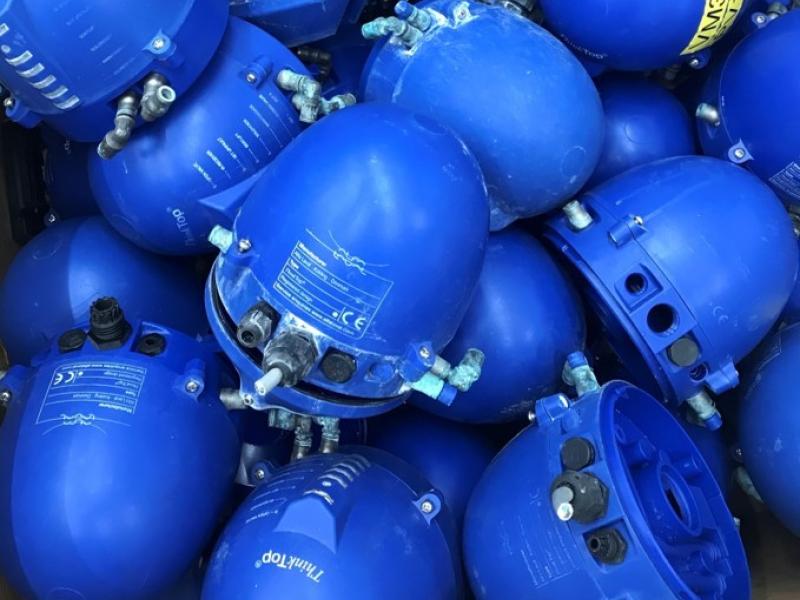The Economist Intelligence Unit (EIU) has released the findings from an independent body of research, commissioned by Microsoft, that explores how pre-pandemic investments shaped organisational outcomes amid the pandemic and how Covid-19 has affected business and digital priorities moving forward.
Key findings from the manufacturing report include:
• 27 percent of manufacturing respondents cite the speed of technological change as a barrier to digital transformation, compared to a survey average of 19 percent.
• 56 percent of manufacturing respondents name improving operational efficiency as the focus of their digital transformation over the last year, more than any other sector, compared to a survey average of 40 percent.
• Manufacturing saw the biggest shift toward the use of technology for employee engagement during the pandemic among all eight industries surveyed.
• 48 percent of manufacturing respondents named employee engagement as where they most increased their use of technology during the pandemic, compared to a survey average of 36 percent.
• Manufacturing respondents were most likely to see the societal impacts from the rise of distributed and remote work from the pandemic in positive terms.
The transformation imperative: Manufacturing
A new era of sustainable manufacturing
This industry reported operational efficiency as the primary driver of digital transformation during Covid-19. There was a shift toward tech used for employee engagement, and diversity and inclusion were seen as the top positive societal benefit of digital transformation in the industry.
Key research findings:
• Operational efficiency has been the primary driver of digital transformation in manufacturing.
• Manufacturing saw the biggest shift toward the use of technology for employee engagement during Covid-19.
• Respondents say diversity and inclusion, skill-building and climate change are the the three biggest places where digital transformation could have a positive societal benefit.
For manufacturing organisations around the world, the production and supply of goods in an environmentally and socially responsible manner – “sustainable manufacturing” – is not just an aspiration, but a business imperative.
The key goals are to reduce the cost and waste associated with the use of materials and energy; streamline supply chains; comply with higher standards of regulatory oversight; and meet the new expectations of customers, investors and local communities.
Smart manufacturing, characterised by the use of sensors in machinery and vehicles and the analysis of the data they produce, is inextricably linked to this search for leaner, less wasteful processes that are more flexible in response to trends in supply and demand.
Twenty-seven percent of manufacturing respondents say the speed of technological change is the biggest barrier to digital transformation vs 19 percent survey average.
Yet the speed of technological change continues to challenge the industry relative to other sectors. In the global survey of 800 executives across eight 27 percent of manufacturing respondents cite this as a barrier to digital transformation, compared with a survey average of 19 percent. And in three years’ time, they expect to a higher extent than the survey average, that barriers will persist when it comes to addressing the skills and talent gap that the industry faces and integrating new technology with legacy systems.
Responding to disruption
Upheavals during the Covid-19 pandemic have underscored how far the industry still has to go on its digital transformation journey. Respondents from the manufacturing sector cite ‘improving operational efficiency’ as the top focus of their digital transformation strategies over the last 12 months, selecting this at a much higher rate than other sectors (56 percent versus a survey average of 40 percent).
But when asked how prepared their technology infrastructures were to support pandemic-related resilience measures, manufacturing respondents report below survey-average levels of preparedness on every measure except those directly linked to factory-floor operations – namely, real-time decision making and monitoring employee safety. That said, manufacturing respondents are most likely to say the pandemic has made securing budget for digital transformation easier than it was previously.
Respondents are also optimistic that funding will continue. Budgetary constraints are expected to drop dramatically down the list of barriers to digital transformation in manufacturing over the next three years – the biggest drop seen in the survey.
Figure 1
A move to more distributed workforces
Against this backdrop, Covid-19 has triggered the most marked increase among all sectors in focus on the use of technology to foster employee engagement in areas such as remote work collaboration and skill development (Figure 1). This could be due to the fact that people are still needed on site to keep factories running. Digital technologies play a key role in enabling managers and back-office staff located remotely to oversee their work and provide them with training and assistance.
Covid-19 has triggered the most marked increase among all sectors in focus on the use of technology to foster employee engagement in areas such as remote work collaboration and skills development.
In keeping with this, manufacturing companies are looking to different technologies that enable more remote work and resource management. Respondents from this sector view cloud computing as more important to meeting objectives than those in any other sector (58 percent versus a survey average of 50 percent), suggesting they will use more remote computing resources (and fewer on-premises data centres) for running and managing manufacturing systems and collecting/ analysing data from connected sensors.
Digital skills and green production
The digital transformation of manufacturing to be both smarter and more sustainable will require more workers to have digital skills, to programme machines and robots to perform tasks, and to analyse data to inform decision-making. At the same time, the globalised nature of manufacturing means that those skills will need to be built over wide geographic areas.
Figure 2
As a consequence, diversity and inclusion tops the list of positive societal impacts that manufacturing respondents believe that digital transformation in their industry could have (44 percent; Figure 2), much higher than the survey average of just 30 percent, closely followed by skill building (41 percent). The manufacturing industry was also among the most likely to see the societal impacts from the rise of distributed and remote work from Covid-19 in positive terms.
At the same time, respondents are also conscious of the role that digital transformation has to play in terms of their industry’s environmental impact. Manufacturing is second-most likely – after the closely related automotive field – to cite climate change as an area of opportunity for positive societal impact (29 percent). This is likely to be linked to the industry-wide goal of building more sustainable processes and practices.
In terms of skill-building, however, the sector currently participates in digital-skills initiatives at well below survey-average rates in all areas apart from apprenticeships. Working more closely with universities and governments would be a good place to start on building the digital skills needed to support smarter manufacturing in future.






